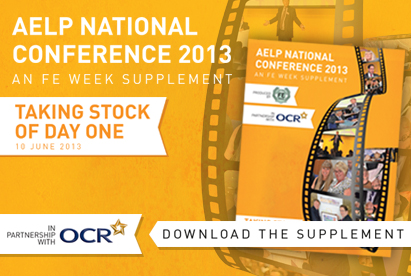For Michael Davis, the Richard Review got it just about right
In politics, consensus is a rare thing. And consensus on something that actually matters is even rarer. That’s why apprenticeships, with their broad cross-party support, are a cherished area of relative stability in the turbulent waters of FE and skills.
For the Prime Minister, apprenticeships should become “the new normal”. For Labour, they are for the “other” 50 per cent — the ones that don’t go to university.
It’s clear that apprenticeships enjoy an exalted position unparalled within the skills system which has been rightfully earned.
Good apprenticeships deliver strong economic returns for both employers and individuals and there is a clear consensus and commitment to continue raising apprenticeship standards.
Yet within this, the truth is that only 15 per cent of employers offer apprenticeships and only six per cent of young people are currently apprentices. We have some way to go before we can say that apprenticeships are mainstream.
Last year, total government spending on apprenticeships topped £1.4bn, yet reached less than 10 per cent of young people.
If we want to substantially raise our game in vocational training within a climate of tighter public spending constraints, it’s clear that a different approach is necessary as it is difficult to see how we can achieve another step increase in engagement in apprentices on current budgets.
Doug Richard’s review of apprenticeships proposed a number of reforms aimed at boosting quality and re-establishing apprenticeships as good jobs with training to industry recognised standards.
For me, ensuring public funding for apprenticeships flows directly to employers — as advocated in Doug’s review — is an integral part of this reform.
I believe that this has the potential to put vocational education on a long-term pathway for sustainable public investment alongside greater private investment, as has already been done to a certain extent in higher education.
At the commission, our proposal is that we need to “hardwire” good jobs for young people into how businesses think and the labour market works — and that the most effective way of doing this is to leverage more employer investment, in the broadest sense of the word, by passing the public contribution for apprenticeships directly to employers as a PAYE offset.
Vocational education, including the apprenticeship system, has been subject to many reforms, and for us to further complicate the system would be damaging. Direct payment through PAYE, however, builds upon an established system which is known and understood by all employers.
Experience shows us that tax changes are a powerful mechanism to influence employers and can help apprenticeships become a normal part of business behaviour while providing employers with a tangible return on their investment.
Moreover, in terms of employer involvement in the skills agenda, a shift to the PAYE model would position investment in training alongside other investment decisions. Public funding would move closer to the front line, improving accountability both to employers and employees. Putting purchasing power for apprenticeships in the hands of employers would make them active customers, as well as co-investors — with a vested interest in driving quality.
Creating an established vocational path for the young people who don’t go to university should be a priority, and with high level occupations set to increase in the UK, so should ensuring that our young people have the skills to match
Changing the way that we understand employer engagement can allow us to ensure investment, quality and innovation, and ultimately to secure more and better jobs.
Michael Davis, chief executive UK Commission for Employment and Skills










Your thoughts